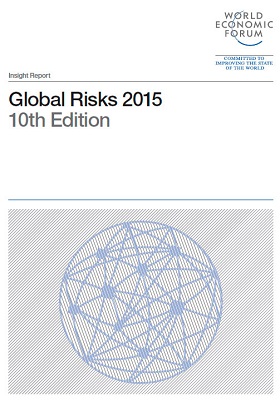On January 21-24, Davos will host the 45th Annual Meeting of the World Economic Forum (WEF), which was probably not intended to be an event of such grand scale by its founder Dr. Klaus Schwab. In 1971, Schwab invited prominent businesspersons, economists and politicians in an attempt to project the key trends for Europe's near-term economic, social and cultural development. Known for some time as the European Economic Forum, with time the gathering went global, significantly expanding both the range of problems under discussion and timeframes for their resolution.
On January 21-24, Davos will host the 45th Annual Meeting of the World Economic Forum (WEF), which was probably not intended to be an event of such grand scale by its founder Dr. Klaus Schwab. In 1971, Schwab invited prominent businesspersons, economists and politicians in an attempt to project the key trends for Europe's near-term economic, social and cultural development. Known for some time as the European Economic Forum, with time the gathering went global, significantly expanding both the range of problems under discussion and timeframes for their resolution.
In the run-up to the event, Davos again published its Global Risks Report, presented by about 900 experts who were selected 10 key risks out of the suggested three dozen and categorize them according to two classifications, i.e. probability and impact. The most probable list includes geopolitical hazards, followed by those connected to extreme weather cataclysms, governance, state failure and unemployment, while impact-related perils include shortages of water resources, the spread of infectious diseases, proliferation of weapons of mass destruction, interstate conflicts, and the failure of attempts to adapt mankind to climate change.
All of the above-mentioned dangers have been worrisome on a fairly permanent basis, while the 2015 list introduces some degree of unexpected novelty, because geopolitics, currently in the centerpiece of the global agenda, was virtually nonexistent as a threat to the world order over the 25 years following the fall of the Berlin Wall.
The conflict in Crimea offers a disquieting reminder that interstate conflicts may generate grave regional fallouts, which was exactly the reason why geopolitical risks top the 2015 threats register. Commenting on the paper, IMF Managing Director
The existing world order may be also threatened when national governments become undermined to the point of complete state breakdown. The WEF experts cite Ukraine, as well as Syria and Iraq where authorities have considerably lost their ability to counter the expansion of the Islamic State.
All of these risks are invariably interconnected, as economies always are harmed by geopolitical calamities, and economic and trade levers are becoming more and more popular in handling geopolitical matters. On the one hand, countries are eager to gain geopolitical clout through regional economic integration, while on the other, they are employing economic sanctions and protectionism in order to apply political pressure, threatening the very principle of global economic cooperation.
Fiscal crises, data theft and cyber attacks make up the complete list of issues to be covered by this forum, with priorities likely matching the above classification.
The World Economic Forum has always drawn top officials. This session will be attended by German Chancellor Angela Merkel who will present a report on global responsibility, as well as by Chinese Premier of the State Council Li Keqiang with his expected speech intended to bolster global trust in China’s economy. With the absence of President Putin and Premier Medvedev, the much less impressive Russian team includes economic ministers and several well-known businessmen.
Moscow launched its drive toward the WEF back in 1986, when the USSR Chairman of Council of Ministers Nikolay Ryzhkov used the direct TV-bridge to address its participants. The turning point came in 1987 which saw German Foreign Minster Hans Dietrich Genscher make his famous “Give Gorbachev a Chance” speech to express support for perestroika. Since that time, the Soviet and Russian delegations have become permanent participants and a major attraction during several years, especially after the disintegration of the USSR and the start of market-oriented reforms.
In 2011, Russia was again in the limelight, with President Medvedev allowed to make the opening remarks that normally set the trend for the entire event. “Our country is on the modernization path,” he said, “We are truly advancing, we are truly moving forward. The anticorruption drive, upgrading of the judicial and law enforcement systems are on the way, perhaps with no impressive results. But these are our practical steps aimed at improving the investment environment and quality of life in Russia.”
Mr. Schwab did not hesitate to offer a helping hand, underlining that Russia was successfully overcoming the aftereffects of the global financial crisis, managing to make major steps toward economic stability, and working hard to implement modernization plans for small and medium enterprises and in the fields of science and technology.
In 2011, there was hardly anyone who could imagine the current setting for which the Russians to interact with the global elites in Davos. Nevertheless, criticism over Ukraine, the G7/8 and OECD mishaps, the drop in GDP and poor financial ratings are unlikely to serve as pretexts for giving up positions. Even now Russia is a potent power capable of handling diverse global risks, including those to be discussed by the World Economic Forum, which provides Moscow with sufficient grounds to press ahead with its high-profile role at the global meeting.





